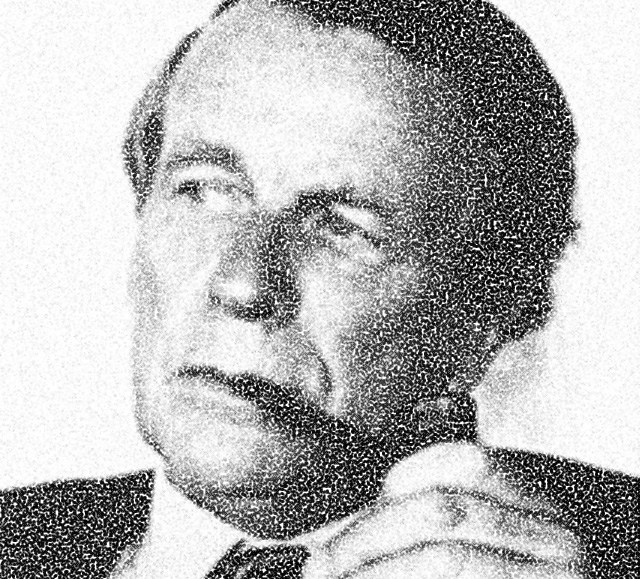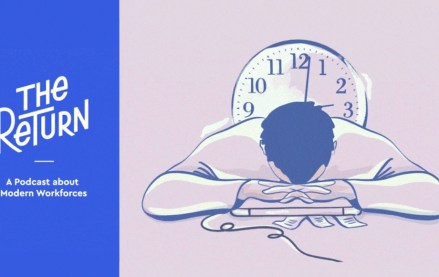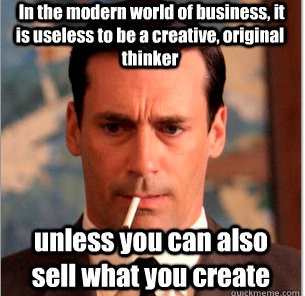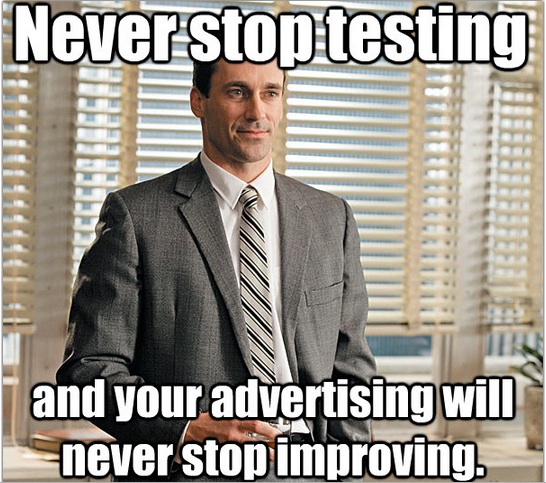
Before there was Don Draper, there was David Ogilvy. “The father of advertising,” as he is sometimes referred to, was all about valuing the consumer’s intelligence, testing and “the big idea.” He helped forge a new, creative path for advertising in the ’60s that we now all look back on as the Golden Age of the advertising industry.
Unsurprisingly, a lot of what Ogilvy had to say back then still applies to the industry today — and it is perhaps even more important to remember some of his soundbites now with technology and the pace of the digital world forcing advertisers to be faster, more agile and more creative in real time.
Here are five David Ogilvyisms — shown as Don Draper macros, because why not? — that are still relevant today.
1. “In the modern world of business, it is useless to be a creative, original thinker unless you can also sell what you create.”
2. “Never stop testing, and your advertising will never stop improving.”
3. “Big ideas are usually simple ideas.”
4. “The best ideas come as jokes. Make your thinking as funny as possible.”
5. “Our business is infested with idiots who try to impress by using pretentious jargon.”
Photo of David Ogilvy via Wikimedia Commons
More in Marketing

With the rise of the chief AI officer, it’s time to examine ‘czar’ culture
Even if it’s a familiar pattern — hot new thing, new C-Suite exec to tackle said thing, a few years go by and that C-Suite position no longer exists as everyone is now doing said thing (or it was a fad that has since faded away) — does it make sense for businesses to continue to appoint new czars with every new trend?

Why Cava’s bid for brand awareness means prioritizing streaming ads
Fast-casual restaurant chain Cava has been in growth mode over the past year and is leaning into streaming ads in an effort to boost brand awareness.

A history of middle manager stress: The Return podcast, season 3, episode 1
In episode one, McKinsey partner Emily Field tells us more about why middle management is critically important to the workforce.










